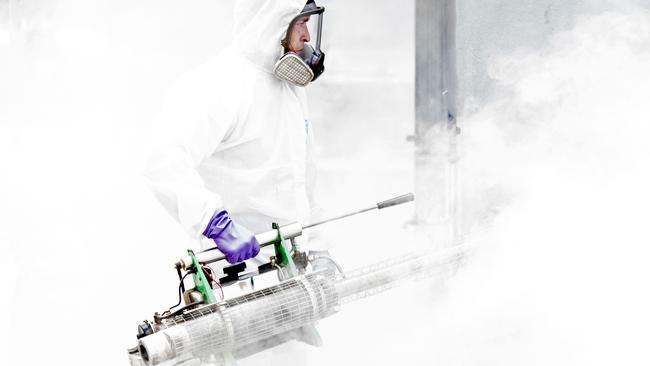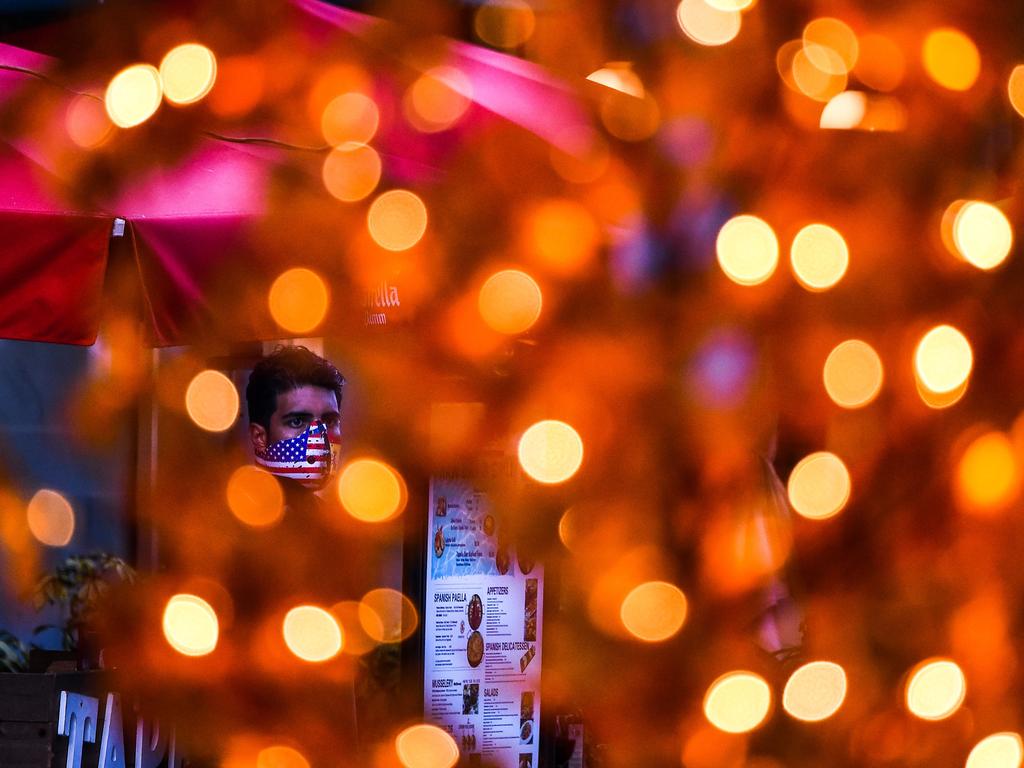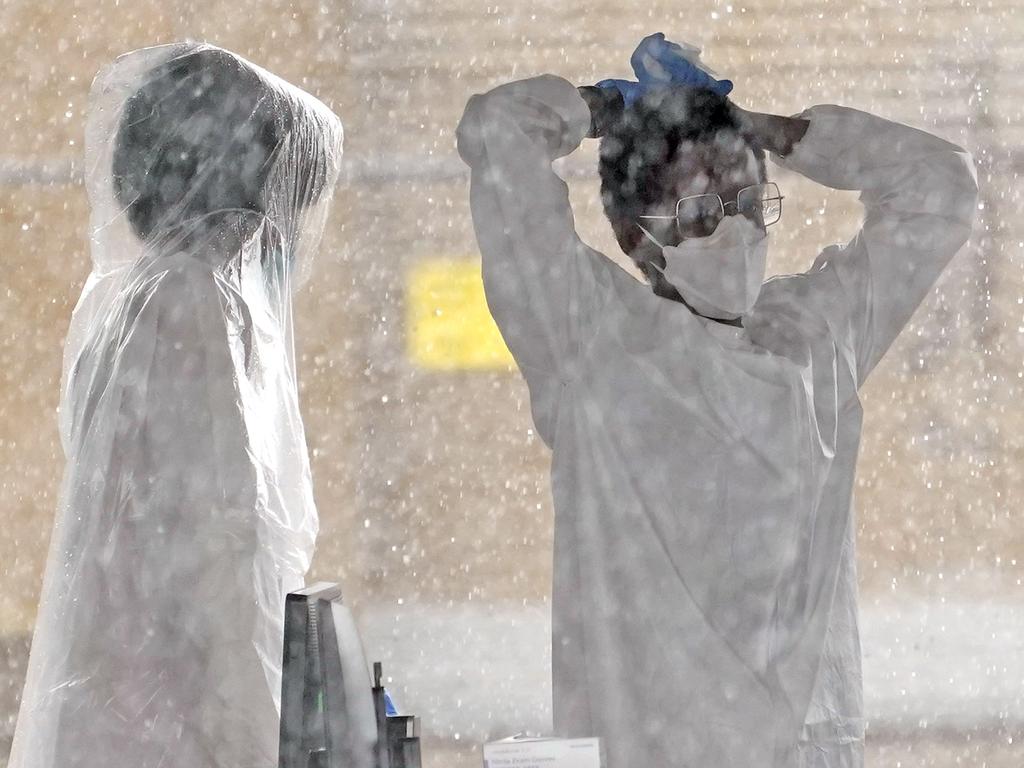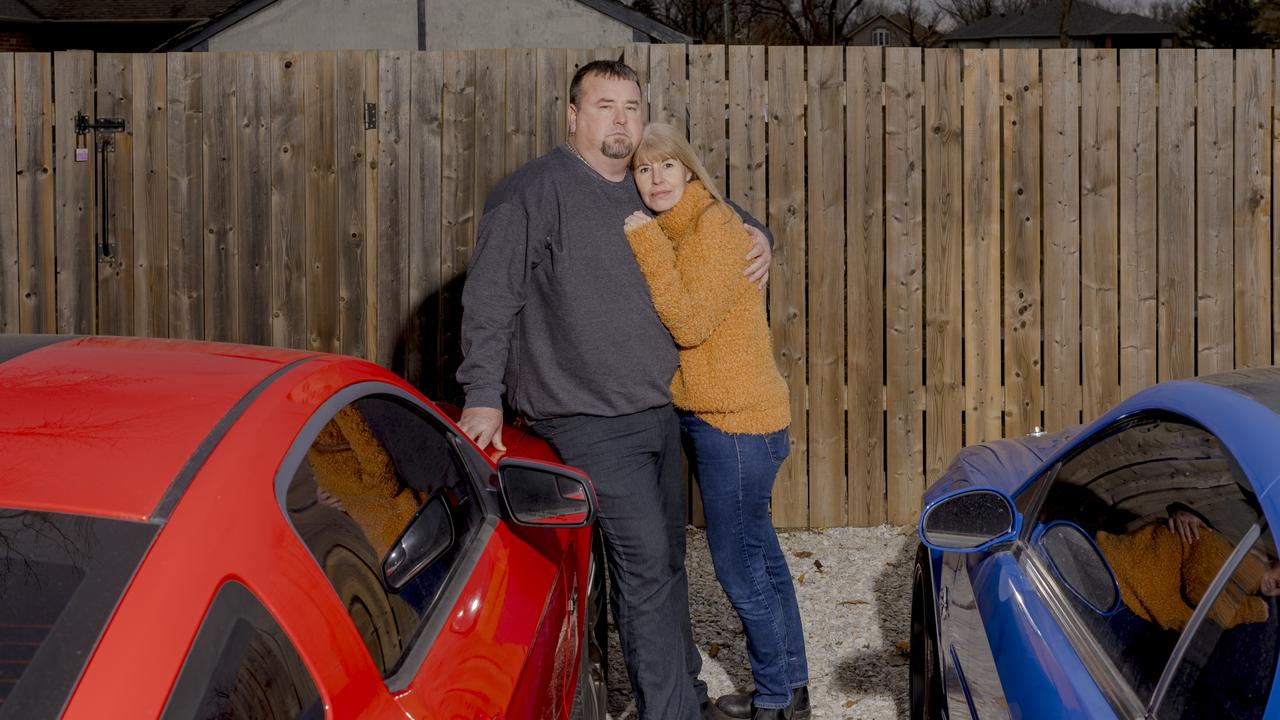Coronavirus: US under siege from pandemic
The US posted a record 53,000 new coronavirus cases as the deadly pandemic accelerated across the Americas.

The US posted a record 53,000 new coronavirus cases as the deadly pandemic accelerated across the Americas, but its slowdown in Europe led Britain to announce on Friday the first exemptions to its quarantine rules.
With Europe looking to turn the page on the biggest public health crisis in modern history, travellers arriving into Britain from Germany, France, Spain and Italy will no longer be required to self-isolate from July 10.
Touching almost every country on Earth, COVID-19 has hit at least 10.8 million people and killed 521,000 globally, shattering previously buoyant economies and bringing public life to a standstill.
Yet while much of the planet pursued a return to some semblance of normality, the US soared past 50,000 new infections on Thursday for the second time in two days, casting a grim pall over Independence Day celebrations.
Now the epicentre of the pandemic, the country has recorded nearly 129,000 deaths out of more than 2.7 million cases. It’s expected to record its three-millionth infection next week.
Florida, which now has more than 169,000 cases, is a key focus of public health experts, who worry about a surge in southern and western US states. Florida Governor Ron DeSantis blamed the rise on “social interactions” among young people gathering at parties, beaches, bars, swimming pools and elsewhere, as well as a more “robust” testing program.
In Texas, where more than 2500 people have died, Governor Greg Abbott ordered people in counties with 20 or more cases to wear masks and banned gatherings of more than 10.
The move came after Texas reported nearly 8000 new cases on Thursday, amid a record spike in infections that led to the governor largely halting the reopening program that started in early May.
States that reopened their economies the earliest and fastest after the pandemic struck — and against the advice of federal health authorities — are experiencing the highest caseloads. Florida and other Sun Belt states have been forced to re-shut restaurants, bars and beaches as the nation braces for the July 4 weekend. These include California, which has suffered a 56 per cent increase in hospitalisations over two weeks, Governor Gavin Newsom said.
But President Donald Trump, under fire for his handling of the crisis, highlighted positive jobs data that showed 4.8 million people were back to work in June. “Today’s announcement proves that our economy is roaring back,” said Mr Trump. “The crisis is being handled.” The President’s optimistic outlook came a day after Arizona — population 7.3 million — recorded more new cases and deaths than the entire EU, which has 446 million citizens.
But with some US governors imposing 14-day quarantines on visitors from harder-hit states, the EU has begun reopening its borders. Residents of the US, Brazil and virus-ravaged Russia are still being denied entry.
The World Health Organisation warned on Wednesday that the pandemic was accelerating, with more than half of the world’s infections over the past half-year recorded last month alone. The past week has brought new highs, with cases topping 160,000 “on every single day”, said WHO chief Tedros Adhanom Ghebreyesus.
Cases have been skyrocketing across Latin America. Brazil, the region’s largest economy, has almost 1.5 million confirmed cases, second only to the US. Nevertheless, Rio de Janeiro authorised bars, restaurants and cafes to reopen at 50 per cent capacity.
The country’s “R number” — the average amount of people to whom the infected will pass the virus — was one a month ago but has since risen to 1.5. “That number will increase even more with reopening, bringing health problems to our population,” said Roberto Medronho, director of research at Rio’s Clementino Fraga Filho University Hospital.
Brazil was nearing 61,000 deaths on Thursday, with 1.45 million infections. Colombia, the fourth-largest economy in the region, passed 100,000 cases while Peru topped 10,000 dead.
Countries in the Western Balkans which have so far been spared the worst of the virus have a new rise in cases. After holding elections and sporting events throughout June, Serbia announced on Thursday new restrictions on gatherings of more than five people in its four hardest-hit towns. The country’s world No 1 tennis player, Novak Djokovic, said he and his wife had tested negative for COVID-19 after catching an infection at a tournament he organised.
In the Middle East, deaths in Iran surpassed 11,000, as the country records a rise in fatalities and cases following a low in early May.
AFP






